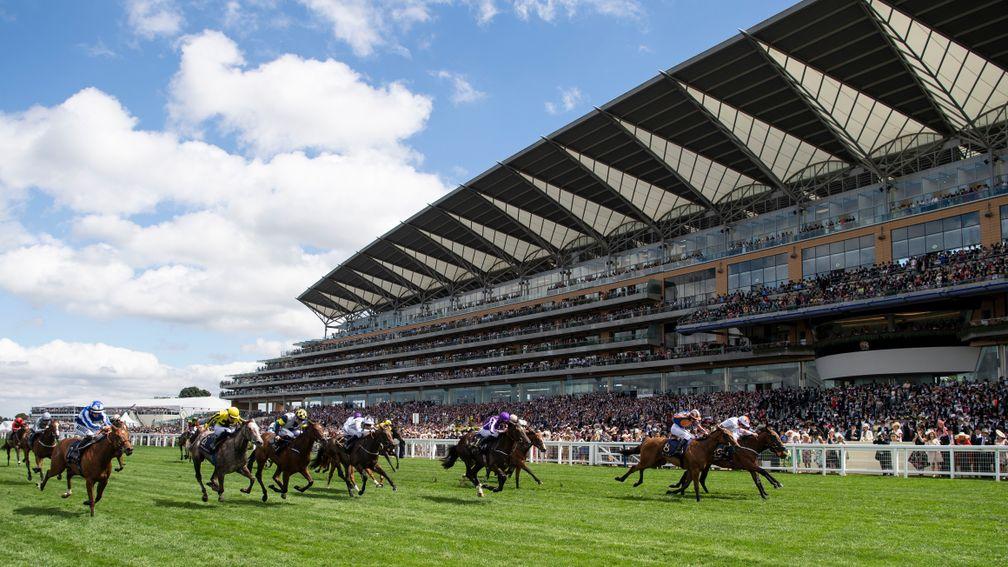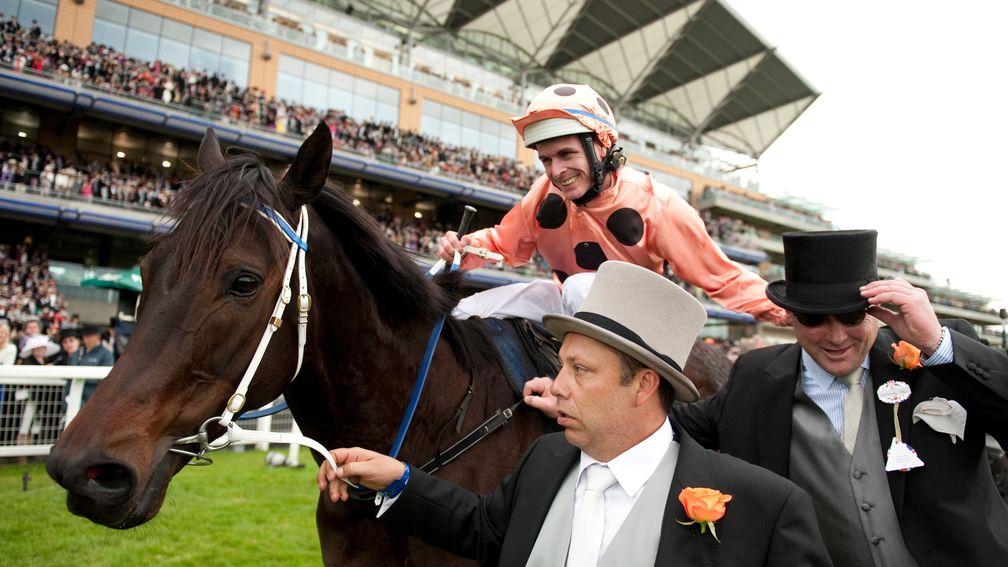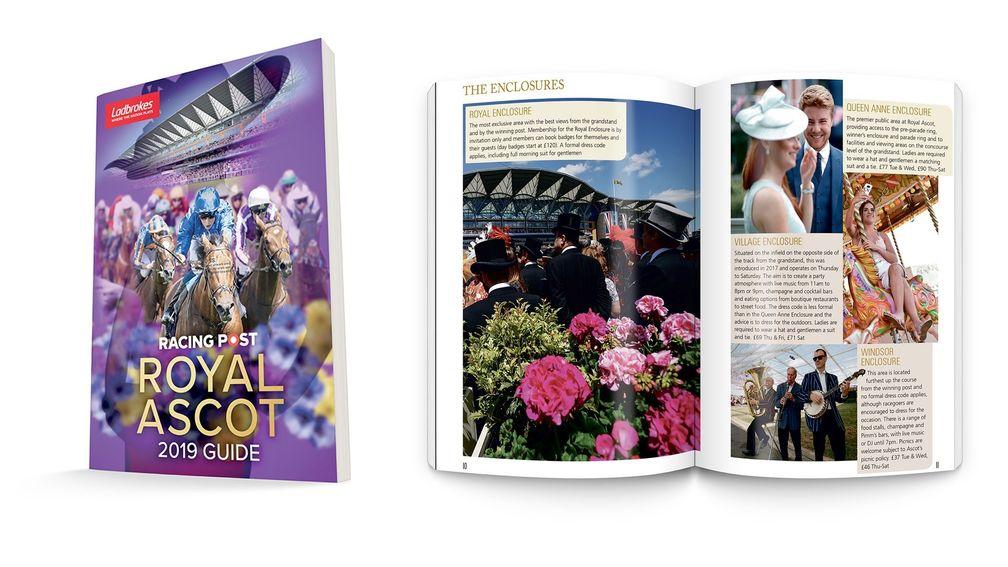Awkward Ascot: ten moments at the royal meeting that left many red-faced

The royal meeting is home to the best horses, the best fashion and some very awkward moments ranging from the truly bizarre to the outright ridiculous. Here Stuart Riley looks back at some of the high – or possibly low – lights down the years
Black Ascot
Royal Ascot's first awkward moment came at what was intended to be the first royal meeting in 1910, which instead became known as Black Ascot. The meeting, which has become inextricably linked with the royal family, took place just five weeks after the death of King Edward VII and the country was still in mourning. The 1911 edition is now generally regarded as the first Royal Ascot and the meeting now contains the King Edward VII Stakes – with the race renamed in 1926 to honour the eldest son of Queen Victoria.

In fact, the meeting's dalliance with awkwardness predates even its royal backing as in 1892 Milford won the Coventry Stakes for owner Mr Jersey. Mr Jersey was in fact a name to conceal the horse's true owner – the actress, producer and socialite Lillie Langtry – who was excluded from owning horses due to her gender.
Langtry was gifted the horse by George Alexander Baird in what was an expensive, but successful form of courtship – the pair were married in 1874 – and Langtry went on to own her own stud and a string of 20 horses following his death.
Thunder and lightning
The abandonment of the card on June 18, 1930 – after just the second race – sounds awkward enough. However, when you factor in it was due to flooding, and all those who had travelled to Berkshire in their finery were soaked through after seeing The McNab, ridden by Freddie Fox, land the Royal Hunt Cup, it paints an even sorrier picture.
In the fierce thunderstorm that hit the track lightning struck a bookmaker’s umbrella that a Mr Hobein from Southport was sheltering under. The lightning strike cost Mr Hobein his life, but officials at the time were not to be deterred and decided the show should go on, until rain stopped play.
Careless stewarding
In 1954 the Ascot stewards took exception to an 18-year-old jockey, banning him for the rest of the meeting for "dangerous and erratic riding". The Jockey Club doubled down, citing his "complete disregard for the rules of racing and for the safety of other jockeys" as a reason for withdrawing his licence for six months, while and adding the condition he would only get it back if he spent the six months working for a trainer other than his father.

That jockey was Lester Piggott, who got into trouble partnering Never Say Die – the horse he won his first of nine Derbys on earlier that month – in the King Edward VII Stakes. The pair got into an extremely rough tussle with the eventual winner Rashleigh on the final bend and Piggott missed the ride when Never Say Die landed the St Leger by 12 lengths. One that got away.
You’re not coming in
The tales of jobsworths at Royal Ascot are almost never ending, with the bowler hat-wearing stewards brigade ruining many a racegoer's day over the years. The examples are endless, but perhaps the pick was the greencoat who, in 1982, refused a certain Vincent O’Brien entry into the owners' and trainers' bar on the grounds he did not have the correct badge.
You have to assume that if the Queen had the incorrect badge she too would have been refused. By 1982 she was about the only person at Ascot who outranked O’Brien in importance. By then O'Brien had trained six Derby winners, won three King Georges, three Arcs and a Gold Cup. He had trained Ballymoss, Sir Ivor, Nijinsky, Roberto, The Minstrel and Alleged in a career that led to him being voted the most influential person in racing history in a worldwide poll conducted by the Racing Post in 2003.
Ultrasonic stun-gun
The 1988 running of the King George V Handicap is perhaps the biggest jewel in this piece – it could be on the list twice. First, Greville Starkey fell from the 4-1 second favourite Ile De Chypre when the horse inexplicably swerved left when in front inside the final furlong, which is awkward enough in a big betting race on the Flat.

But then the following year the plot thickened and a possible reason for Starkey’s embarrassment surfaced in a Southwark Crown Court case. A cocaine-smuggling gang were being investigated and they had allegedly used a high tech ultrasonic stun gun to direct a high-pitched sound at the horse, as part of a money laundering scheme.
A car dealer named James Laming claimed to have carried out the operation, with the device disguised as a pair of binoculars, but he was rather light on details and no conclusive proof was ever produced.
Biting back
The 1992 running of the Gold Cup, won by Drum Taps for trainer Lord Huntingdon, was notable not so much for went on at the front but what happened in behind. Well, one behind in particular, that of Frankie Dettori.
Dettori was aboard the winner, but as he went past Walter Swinburn’s mount Arcadian Heights the Geoff Wragg-trained runner-up attempted to take a bite out of Dettori’s derriere. It was the second time Arcadian Heights attempted to bite passing traffic in his career and the Jockey Club responded by ordering him to be equipped with a net muzzle in future which only made him sulk and resulted in the 1994 Gold Cup winner doing so as a gelding.
Flogging a dead horse
In 1996 Alan Bailey declared Reverand Thickness, his contender for the Royal Hunt Cup, in truly bizarre circumstances. The main issue was the horse was dead after breaking his off-fore at Chester that month, but Bailey was hoping to recover the £360 entry fee. At the time if a horse was eliminated rather than withdrawn entry fees were refunded. It resulted in the BHB investigating the loophole.
Fashion faux pas
The 2009 royal meeting was one for awkward fashion moments. On Ladies' Day Kamilla Klimczak earned her 15 minutes of fame for her hat, which referred to the moment’s big political scandal. It came with a large receipt that read, “I paid for this on expenses”.
Two days later, the Daily Telegraph reported two racegoers had been turned away due to fashion accessories deemed unacceptable by the racecourse. It is easy to assume this was merely another case of Ascot getting its knickers in a twist in the wake of the embarrassment caused by the hat, but no, one racegoer had turned up with an “impeccably dressed” cat, complete with bow-tie, and the other had a parrot on their shoulder.
Fight, fight, fight!
Royal Ascot is no stranger to horses and jockeys fighting out the finish, but more than once it has boiled over into the grandstand. Who can forget the videos that emerged in 2017 of a bare-chested punter challenging two men in suits to “finish this”, but in 2011 there were even less savoury scenes as at least six men in three-piece suits had an all-out brawl in which plastic chairs, tables, and a £98 bottle of Laurent Perrier were used in an incident that left at least one man nursing open head wounds.
No arrests were made but the ugly event, which took place on the lawn, was a pretty awkward moment for the racecourse given it occured on Ladies' Day with the Queen present.
Flight, flight, flight!
Black Caviar’s visit in 2012 was all the more remarkable in the wake of the year-and-a-half long will she, won’t she Winx saga. But her connections decided to bring her – complete with a Lycra flying suit that has not exactly caught on, but provided lots of spots for advertisers – and she put her unbeaten record on the line in the Diamond Jubilee.

The Australian superstar was sent off 1-6 and duly made it 22 wins in a row, but only just. It was not the head margin that made it awkward, it was that with about a quarter of a furlong to run jockey Luke Nolen decided she had done enough and stopped riding her.
With about half the distance to the line to go the whole crowd realised – somewhat awkwardly – that Moonlight Cloud was closing fast. With half the distance to go again Nolen realised it himself, frantically pushing her out. Given it got so awkward even the jockey felt it, it seems an appropriate way to close our list.

For the freshest betting advice, based on latest going and market conditions, don't miss the Live Tipster every afternoon. Just click Raceday Live at racingpost.com or the mobile app
Published on inRoyal Ascot
Last updated
- What were the most - and least - bet on races at Royal Ascot?
- Jamie Spencer to miss Newmarket's July meeting after receiving eight-day whip ban for Royal Ascot ride
- Oisin Murphy: 'I don’t sit back and think 'that was great' - I need to keep going'
- French Group 1 'the ideal next spot' for 80-1 stunner Rashabar after special Royal Ascot for Brian Meehan
- 'We took a lot more euros from the Irish this year' - mixed feedback on Royal Ascot from on-course bookmakers
- What were the most - and least - bet on races at Royal Ascot?
- Jamie Spencer to miss Newmarket's July meeting after receiving eight-day whip ban for Royal Ascot ride
- Oisin Murphy: 'I don’t sit back and think 'that was great' - I need to keep going'
- French Group 1 'the ideal next spot' for 80-1 stunner Rashabar after special Royal Ascot for Brian Meehan
- 'We took a lot more euros from the Irish this year' - mixed feedback on Royal Ascot from on-course bookmakers